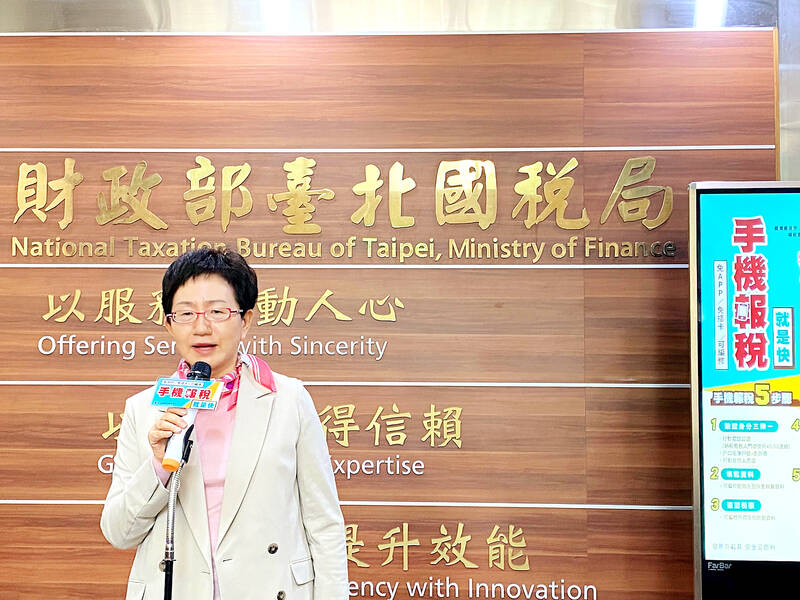Minister of Finance Chuang Tsui-yun (莊翠雲) is to lead a delegation to the Asian Development Bank’s (ADB) 56th annual meeting of the board of governors in Incheon, South Korea, from today to Friday, the ministry said yesterday.
The minister plans to shore up Taiwan’s international visibility and explore opportunities for multilateral financial connections and cooperation at the meeting, it said.
This year’s theme is “Rebounding Asia: Recover, Reconnect and Reform,” the bank said on its Web site.

Photo: Clare Cheng, Taipei Times
At the meeting, finance ministers, central bank governors and officials from ADB members are to interact with representatives from the private sector, development partners, young people, academia, civil society and the media, it said.
Central bank Deputy Governor Chu Mei-lie (朱美麗), who is Taiwan’s alternate governor to the ADB, is also to attend.
The board of governors are expected to focus on the bank’s role in ensuring a sustainable and inclusive recovery among developing member countries, while seeking to make greater contributions in the region, including on climate change, it said.
Participants are also to explore ways to expand ADB’s lending capacity to meet high demand for financing, it added.
The meeting’s events provide an opportunity for policymakers and development leaders from across Asia and the Pacific to examine the issues that would shape the region’s recovery from the COVID-19 pandemic, ADB Managing Director General Woochong Um said.
The flagship Governors’ Seminar is to focus on policies to support the region’s rebound.
ADB President Masatsugu Asakawa is to update the governors on the bank’s operations and set forth his vision for the organization at the business sessions.
Other seminars are to address topics such as workforce and technology needs for a green transition, gender and financial inclusion, new sources of growth and the private sector’s role in promoting sustainable growth, it said.

GROWING OWINGS: While Luxembourg and China swapped the top three spots, the US continued to be the largest exposure for Taiwan for the 41st consecutive quarter The US remained the largest debtor nation to Taiwan’s banking sector for the 41st consecutive quarter at the end of September, after local banks’ exposure to the US market rose more than 2 percent from three months earlier, the central bank said. Exposure to the US increased to US$198.896 billion, up US$4.026 billion, or 2.07 percent, from US$194.87 billion in the previous quarter, data released by the central bank showed on Friday. Of the increase, about US$1.4 billion came from banks’ investments in securitized products and interbank loans in the US, while another US$2.6 billion stemmed from trust assets, including mutual funds,

Micron Memory Taiwan Co (台灣美光), a subsidiary of US memorychip maker Micron Technology Inc, has been granted a NT$4.7 billion (US$149.5 million) subsidy under the Ministry of Economic Affairs A+ Corporate Innovation and R&D Enhancement program, the ministry said yesterday. The US memorychip maker’s program aims to back the development of high-performance and high-bandwidth memory chips with a total budget of NT$11.75 billion, the ministry said. Aside from the government funding, Micron is to inject the remaining investment of NT$7.06 billion as the company applied to participate the government’s Global Innovation Partnership Program to deepen technology cooperation, a ministry official told the

Taiwan Semiconductor Manufacturing Co (TSMC, 台積電), the world’s leading advanced chipmaker, officially began volume production of its 2-nanometer chips in the fourth quarter of this year, according to a recent update on the company’s Web site. The low-key announcement confirms that TSMC, the go-to chipmaker for artificial intelligence (AI) hardware providers Nvidia Corp and iPhone maker Apple Inc, met its original roadmap for the next-generation technology. Production is currently centered at Fab 22 in Kaohsiung, utilizing the company’s first-generation nanosheet transistor technology. The new architecture achieves “full-node strides in performance and power consumption,” TSMC said. The company described the 2nm process as

JOINT EFFORTS: MediaTek would partner with Denso to develop custom chips to support the car-part specialist company’s driver-assist systems in an expanding market MediaTek Inc (聯發科), the world’s largest mobile phone chip designer, yesterday said it is working closely with Japan’s Denso Corp to build a custom automotive system-on-chip (SoC) solution tailored for advanced driver-assistance systems and cockpit systems, adding another customer to its new application-specific IC (ASIC) business. This effort merges Denso’s automotive-grade safety expertise and deep vehicle integration with MediaTek’s technologies cultivated through the development of Media- Tek’s Dimensity AX, leveraging efficient, high-performance SoCs and artificial intelligence (AI) capabilities to offer a scalable, production-ready platform for next-generation driver assistance, the company said in a statement yesterday. “Through this collaboration, we are bringing two